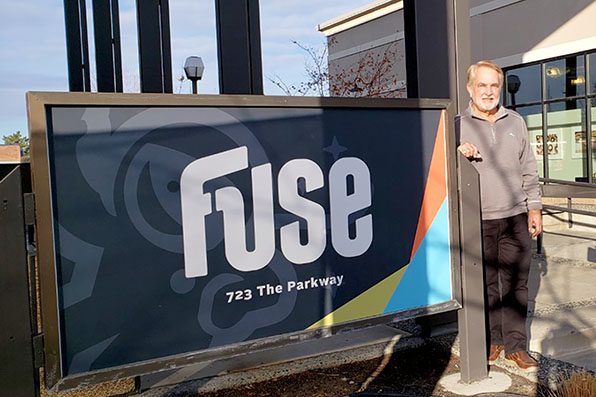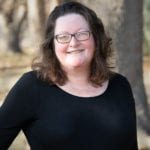
Home » New fund raising up to $2.5M to back promising Tri-City companies
New fund raising up to $2.5M to back promising Tri-City companies

February 18, 2020
A Richland business incubator that provides space and mentoring to startups is adding a critical new tool to its lineup – money.
Fuse SPC, a unique social-purpose corporation with offices on The Parkway, has launched the Fuse Fund with a goal of raising $2.5 million to invest in young, local companies. The fund is capped at $10 million for legal purposes. The fund, operated by Fuse Advisors LLC, expects to make its first two investments this month—in a Kennewick tech company and a Richland food startup.
The Fuse Fund board is led by Marty Conger, who retired last year as chief financial officer for the Pacific Northwest National Laboratory, and a team of serial entrepreneurs: Brett Spooner, Ron Boninger, David Lippes and Megan Chalk. Collectively, the board brings deep expertise in accounting and finance, scrutinizing investments and turning ideas into successful ventures. Fuse Fund will invest between $75,000 and $150,000, with a cap of $250,000 on follow-up investments. It assigns mentors to coach its companies. To date, six companies have approached Fuse Fund and four have made formal pitches. Conger isn’t ready to announce investments but confirmed it has made conditioned offers to two. Both are fast-growing Tri-City startups that have broken into their respective markets and have paying customers. The fund is less concerned about the industry than the location. It invests in the Tri-Cities—defined as Benton and Franklin counties. Conger said the investment board is attracted to companies led by a team with drive and passion to succeed and a market for their product. If entrepreneurs have great ideas and passion but thin business résumés, Fuse SPC can help them become investor ready.
A boost from the Port of Benton
The Port of Benton helped kick off the fund in 2018 when it awarded Fuse SPC a $254,000 grant to create a local seed fund, saying it would lead to investments in more than 25 small businesses in the first years. The grant paid for legal fees, website development and development of investment documents, among other pre-launch costs. Fuse began soliciting accredited investors last summer – those with $1 million or more in assets and an annual income of $200,000 or more, or $300,000 for married customers. The minimum investment is $50,000, though about a third invest more. The fund, which is wholly owned by Fuse SPC, takes the position of general partner. Investors come on as limited partners in Fuse Advisors. The fund is capped at $10 million to stay below the level required to register as a security. Conger expects to close the fund later this year.
High end of risk-reward scale
Investing in emerging businesses is risky and Fuse Fund describes itself as being at the high end of the risk-reward scale. However, it notes that comparable undertakings typically deliver returns in the two- to three-times range over eight to 10 years but there are no guarantees. The fund’s mission is to support local entrepreneurs. Proceeds from investments are split 80-20 between investors and Fuse SPC, which takes an administrative fee. Conger said 20 investors, including the Tri-City Development Council, have committed $1.3 million to date. It has registered another $300,000 from “probable” investors. With the exception of an Arizona investor with Tri-City ties, the investment capital comes from Tri-Citians, though it doesn’t have to be. “I’ll take money from anywhere,” Conger said. David Lippes, a real estate investor and serial entrepreneur, is an investor and board member as well as business coach to one of the fund’s target companies. Lippes said Fuse Fund will provide the much-needed third leg of developing a business – growth capital. Fuse already provides real estate in the form of its coworking space in Richland and support in terms of its mentoring and training program. With the fund, it can help young businesses leverage local investment dollars. “This is the last major piece,” he said.
Not for startups
Fuse Fund invests in young and emerging businesses, not startups. It isn’t seeking would-be entrepreneurs daydreaming about quitting their jobs to pursue an
idea. Rather, it targets existing businesses that have outgrown their startup capital, typically gifts and loans from family and friends. Good candidates have launched. They may be earning revenue or are close to it. They’ve reached the stage where they need to hire more staff, invest in more equipment, enter big contracts — beyond the limits of most family-and-friends capital. “The question becomes whether they’ve raised $100,000 or $2 million that way, they’ve worked through that capital. Where do they go next?” Lippes said. “If you live in the Tri-Cities, the answer is usually somewhere that is not the Tri-Cities.” Fuse Fund is positioning itself as a partner rather than one-stop shop. It provides some, but not all, the funds a business may seek. The two firms it is preparing to support are raising $750,000 and $2 million, respectively, to support expansion plans. Investments from Fuse are helping them attract other investors. “Funds like to see other funds invest,” Conger said. Over time, those relationships will help Fuse draw attention to local firms from larger funds in Seattle and elsewhere.
The state of capital
Securing funds for a promising business is never easy, particularly in rural areas far removed from financial hubs. That doesn’t mean there isn’t money to be had. Early stage investors placed $9.1 billion in seed and angel capital in 2019 nationwide, translating to a median investment of $1.1 million in 4,556 deals, according to Venture Monitor, a publication Pitchbook and the National Venture Capital Association. The West Coast, including Alaska and Hawaii, accounted for more than a third of all deals in 2019. But that doesn’t translate to investments in rural areas such as the Tri-Cities. The Washington Department of Commerce said its options to support young business are limited, but it confirmed it’s a barrier to entrepreneurs who are too young to qualify for traditional bank support.
The state’s StartUp Washington website offers links to funds: startup.choosewashingtonstate.com/resources/funding.
Learn more
For information about investing in the fund or learning more about pitching a business to the investment committee, contact Marty Conger at conger.marty@gmail.com.
Go to fuse.fund for more information.
Local News
KEYWORDS february 2020




